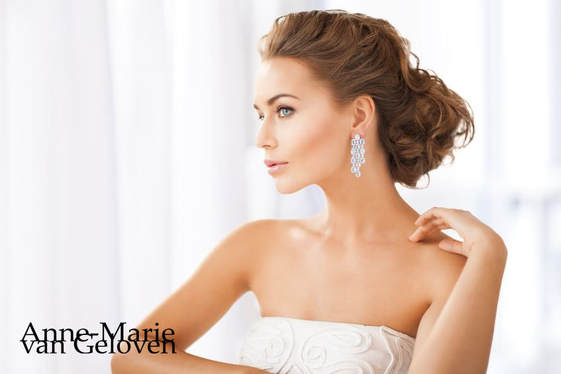
Anything you don't enjoy using or doesn't cater to your needs, is not worth buying.
Skin care is personal and there is a good product for all wallet sizes. However, is a luxury product better than a more affordable one? Is expensive the best? There are actually many factors influencing the prize of a product, other than the prestigious brand-name and advertising costs. Note: This content will mainly apply to skin care catering to the need of healthy, thus not problematic skin types. Problematic (or diseased) skin needs special care which usually is not found in the prestige or luxury skin care segment. Realistic expectations If you are disappointed by the results your skin care products, you might not have bought the right product for you. Make sure that your understand your skin type. There is also a change that you might have too high expectations of what skin care can actually do for you. Your skin will definitely benefit from a good skin care regimen with the right product(s). However, don't expect a metamorphosis, especially not from one day to the next. There are limitations to what skin care can do for your skin and actually what skin care is allowed to do. These rules apply for all skin care products. Formula Some very excellent skin care ingredients are expensive, however there are many very good ingredients which are affordable. Expensive ingredients can be useless "actives" in skin care, and "sound" appealing. Usually "rare" ingredients are expensive, but not all rare ingredients are "the best" actives. The majority of active ingredients only give visible or noticeable results in optimal concentrations. Many skin care products in the prestige or luxury skin care category have long INCI lists (ingredient lists). This will increase the price of the product, but does not necessarily mean that this is the right skin care for you. Furthermore, there is more to a formula than an ingredient list! If the end products texture (also called galenics) is too greasy or too light for your liking, you might not enjoy using the product, and it is not worth the splurge. Luxury brands invest in pleasurable textures of the formula to ensure a positive user experience and high repurchasing rate. A nice texture, doesn't necessarily ensure high performance of a product. Actually the more occlusive products (sometimes regarded as greasy or heavy), are commonly well performing in preventing transepidermal water loss, thus hydration. Note: especially with very long ingredient lists it is highly recommended to try the product before you buy, particularly if you have sensitive skin, as the risk of a skin reaction is increased when the number of ingredients is high. Check also if the product was tested and proven suitable for sensitive skin in this case. Innovation & technology New active ingredients may be exclusively developed by a company and it took them a lot of time, effort and money to collect enough data and proof that this particular active ingredient is effective and safe to use. Products containing such a (probably patented) ingredient can be more expensive than products with more generic frequently used ingredients. Sometimes expensive technology is especially developed or used to improve the formula, texture or container. Packaging Formula's may need a special container or dispenser to be stored appropriately. This is more expensive than a simple standard packaging. Some containers are only luxury and aim to look amazing in your bathroom or on your dresser. Others might be very "inviting", quick and easy to use. If this is what you prefer and enjoy, it might be worth the splurge. Evidence based Evidence is in my opinion compulsory, however not always scientific. Real proof and particularly scientific proof or clinical proof is expensive and time consuming. The best proof is a combination of scientific publications (in peer reviewed journals) and "product-in-use" tests (most similar to daily use) with large representative groups. A claim xx% of testers agree with a panel of 6 or 25 testers, is not enough to be significant. If you want certainty about the benefits of a product, a formula which has proven to be very effective and well tolerated might be worth the splurge. Usually (not always) brands that are recommended by or sold through dermatologists, aesthetic doctors or health care providers have conducted more rigorous research to provide the doctors with evidence, so they feel confident in recommending the product. Likeability brand Some brands have a great story, background, founder and thus a high likeability or appeal. Some huge companies producing large quantities may have lower production costs per product than small companies producing a limited number of products at an external supplier. Some brands "harvest" their own ingredients, have an intense auditing procedure for suppliers or special requirements for the ingredients they use. These factors influence the price of the product. It's certainly not worth the splurge, if you don't like the brand or the company behind the brand. If you have special wishes or requirements, you might be willing to pay for those. Indulge If you love special skin care, indulging "me-moments" and therewith skin care is high on your priority list, you will look at a pricy skin care purchase very differently from someone who just wants an effective moisturiser. If the product or the purchase makes you more happy and you it's use, it might be very well worth the splurge. Need Last but not least, any purchase you make only makes sense if the product fits your needs (skin type and concerns) and your skin care regimen. Try before you buy Some expensive high end products may be worth the splurge, if you enjoy them too. However, there are good affordable alternatives available. The most expensive isn't per se the best or the best for you. Do some research on the product and check reviews from customers. I would recommend to ask a sample and try every product before you buy it and preferably apply it first on the area where you want to use it. For example: applying a product on your hand in the store is not the same as trying it on your face, neck or décolletage! I apologise for the length of this blog post, but the answer is not so easy. Any purchase you make depends on what your are looking for, are willing and able to spend. Invest in proper cleansing before applying any serum or care. If the skin care product is so expensive that you are hesitant to actually use it and you know that it will sit in your bathroom untouched, it's not worth to buy it. If you already own such a product, rather use it and keep the empty container on display. Hope you enjoy and use your skin care.
Comments
|
CategoriesAll Acne Ageing Aquatic Wrinkles Armpits Biostimulators Blue Light & HEVIS Cleansing CoQ10 Cosmetic Intolerance Syndrome Deodorant Dermaplaning Diabetes Dry Skin Evidence Based Skin Care Exfoliation Exosomes Eyes Face Or Feet? Facial Oils Fibroblast Fingertip Units Gendered Ageism Glycation Gua Sha Hair Removal Healthy Skin Heat Shock Proteins Hormesis Humidity Hyaluron Hyaluronidase Hypo-allergenic Indulging Jade Roller Licochalcone A Luxury Skin Care Lymphatic Vessel Ageing Malar Oedema Menopause Mitochondrial Dysfunction Mood Boosting Skin Care Neurocosmetics Ox Inflammageing PH Balance Skin Photo Biomodulation Polynucleotides Psoriasis Regenerative Treatments Review Safety Scarring Sensitive Skin Skin Care Regimen Skin Flooding Skin Hydration Skin Senescence Skip-Care Sleep Slugging Sunscreen Tanning Under Eye Bags Vitamin C Well Ageing Skin Care Wound Healing Wrinkles
Archives
April 2024
|



 RSS Feed
RSS Feed
